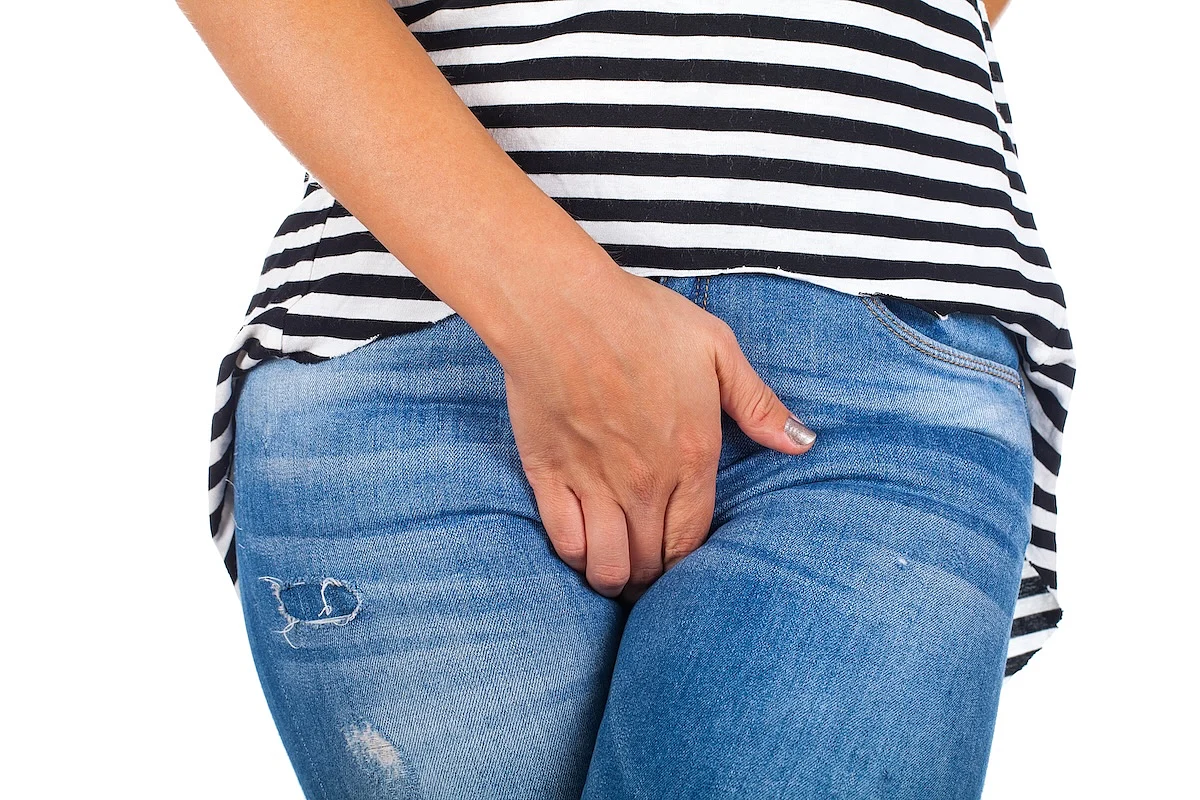Belly Fat Increases Stress Incontinence Risk
By Dennis Thompson HealthDay Reporter
 via HealthDay
via HealthDayTHURSDAY, July 17, 2025 — Middle-aged women with more belly fat have a higher risk for stress urinary incontinence, a recent study says.
Fat around the waist and visceral organs increases by 33% a woman’s risk of leaking when she sneezes, coughs or exerts herself, researchers reported in the journal Menopause.
“Abdominal obesity may cause pelvic tissues to encounter chronic strain and stretching that eventually weakens the structures of the pelvic floor,” wrote the research team led by Mari Kuutti, a doctoral researcher at the University of Jyvaskyla in Finland.
Risk of bladder leaks also was associated with overall body mass index (BMI) and waist circumference, researchers found. BMI is an estimate of body fat based on height and weight.
In fact, the team concluded that BMI and waist circumference probably work as well as more precise measurements of body fat in determining a woman’s risk of stress incontinence.
For the study, researchers tracked the health of 376 women living in the Jyvaskyla region of Finland. They were 47 to 55 at the start of the study.
The team used a variety of methods to analyze the women’s body fat mass, including bioelectrical impedance and X-ray scans.
“We studied body adiposity, measured waist circumferences of the participants, and calculated body mass index,” Kuutti said in a news release. “Then we analyzed the associations of these factors with the symptoms of pelvic floor disorders.”
Results showed that higher body fat levels, as well as higher BMI and larger waist circumference, were associated with an increased risk of stress incontinence.
The highest risk was associated with android fat – excess fat stored around the stomach, chest and upper back.
“Both the mechanical and the metabolic stresses of overweight and excess adipose tissue predispose an individual to the development of urinary incontinence,” researchers wrote.
However, researchers noted that women with severe obesity – a BMI greater than 35 – were specifically excluded from the study, indicating that lower amounts of excess weight can contribute to stress incontinence.
Future research is needed to show whether losing weight might lower this risk or serve as a treatment for stress incontinence, researchers said.
Sources
Disclaimer: Statistical data in medical articles provide general trends and do not pertain to individuals. Individual factors can vary greatly. Always seek personalized medical advice for individual healthcare decisions.
Source: HealthDay
Posted : 2025-07-18 00:00
Read more

- Scientists' Push For a Universal Vaccine Takes a Key Step Forward
- Anxiety in Teens: What to Know
- FDA Approves Rybrevant Faspro (amivantamab and hyaluronidase-lpuj) as the Only EGFR-Targeted Therapy that can be Administered Once a Month
- Trader Joe’s Recalls Chicken Fried Rice Over Possible Glass Pieces
- Volume Rendering of Myocardium, Cardiac Valves Enables Visualization
- Umeclidinium-Vilanterol Tied to Better Outcomes Than Other LAMA-LABA Inhalers in Symptomatic COPD
Disclaimer
Every effort has been made to ensure that the information provided by Drugslib.com is accurate, up-to-date, and complete, but no guarantee is made to that effect. Drug information contained herein may be time sensitive. Drugslib.com information has been compiled for use by healthcare practitioners and consumers in the United States and therefore Drugslib.com does not warrant that uses outside of the United States are appropriate, unless specifically indicated otherwise. Drugslib.com's drug information does not endorse drugs, diagnose patients or recommend therapy. Drugslib.com's drug information is an informational resource designed to assist licensed healthcare practitioners in caring for their patients and/or to serve consumers viewing this service as a supplement to, and not a substitute for, the expertise, skill, knowledge and judgment of healthcare practitioners.
The absence of a warning for a given drug or drug combination in no way should be construed to indicate that the drug or drug combination is safe, effective or appropriate for any given patient. Drugslib.com does not assume any responsibility for any aspect of healthcare administered with the aid of information Drugslib.com provides. The information contained herein is not intended to cover all possible uses, directions, precautions, warnings, drug interactions, allergic reactions, or adverse effects. If you have questions about the drugs you are taking, check with your doctor, nurse or pharmacist.
Popular Keywords
- metformin obat apa
- alahan panjang
- glimepiride obat apa
- takikardia adalah
- erau ernie
- pradiabetes
- besar88
- atrofi adalah
- kutu anjing
- trakeostomi
- mayzent pi
- enbrel auto injector not working
- enbrel interactions
- lenvima life expectancy
- leqvio pi
- what is lenvima
- lenvima pi
- empagliflozin-linagliptin
- encourage foundation for enbrel
- qulipta drug interactions
